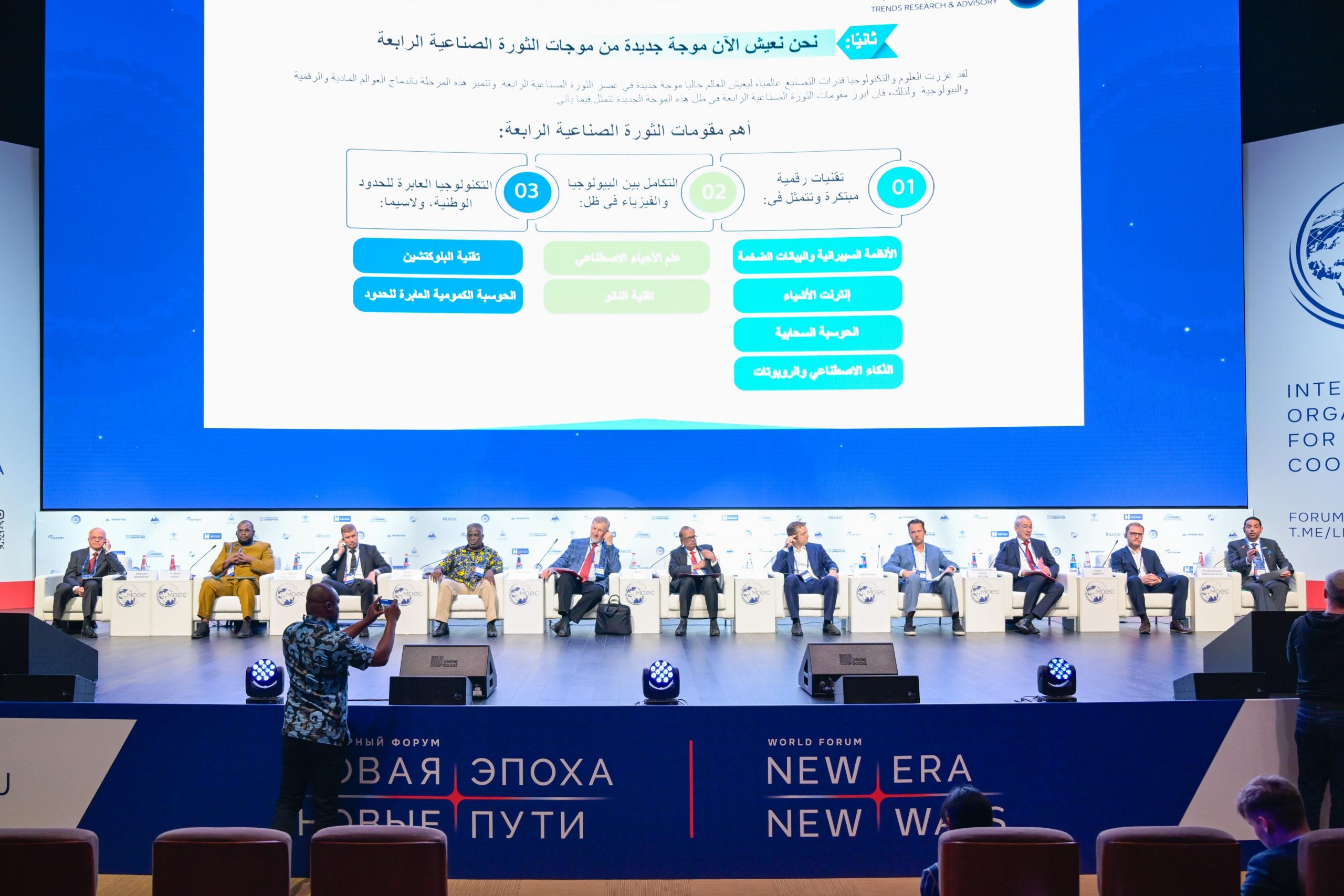TRENDS Research & Advisory, through its office in Russia, took part in the sessions of the “Greater Eurasian Partnership: Development Strategy” Forum, organized by the International Organization for Eurasian Cooperation (IOEC). Dr. Mohammed Abdullah Al-Ali, CEO of TRENDS, participated in a main session titled “New Horizons of Cooperation in Industrial and Technological Development”. Fahad Al-Mahri, Senior Researcher and Head of TRENDS Dubai Sector, also contributed to a session titled “Russia–Gulf Cooperation Council Business Dialogue”.
Dr. Mohammed Abdullah Al-Ali emphasized that global manufacturing industry has achieved rapid advances through the adoption of digital technologies, robotics, and artificial intelligence (AI), noting that world industrial output reached $16 trillion in 2024.
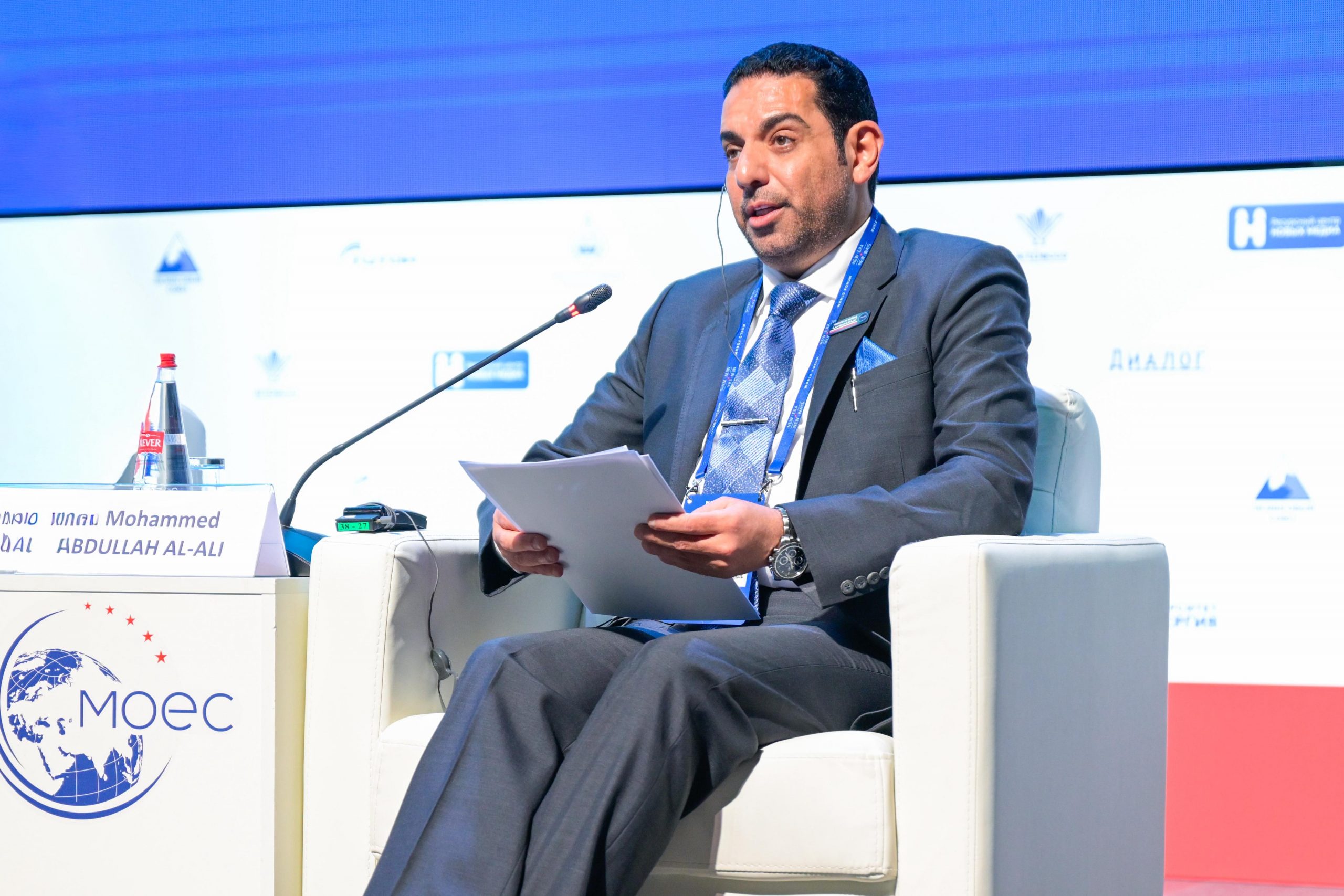
Border Crossing Technologies
Dr. Al-Ali explained that science and technology have enhanced global manufacturing capacities, ushering in a new wave of the Fourth Industrial Revolution, characterized by the integration of the physical, digital, and biological worlds. He noted that the key drivers of this revolution in its current wave include innovative digital technologies (cyber systems, big data, the Internet of Things, cloud computing, AI, and robotics), as well as the integration of biology and physics through synthetic biology and nanotechnology, in addition to border-crossing technologies such as blockchain and quantum computing.
He pointed out that while the Fourth Industrial Revolution has created multiple opportunities for the global economy, it has also generated significant challenges. These challenges stem from the growing importance of the Internet alongside the accelerating pace of cyberattacks on institutions worldwide. Global cyberattacks have intensified, reaching 1,984 weekly attacks during the second quarter of 2025, while the cost of global cyber risks is expected to exceed $329.5 billion by the end of 2025.
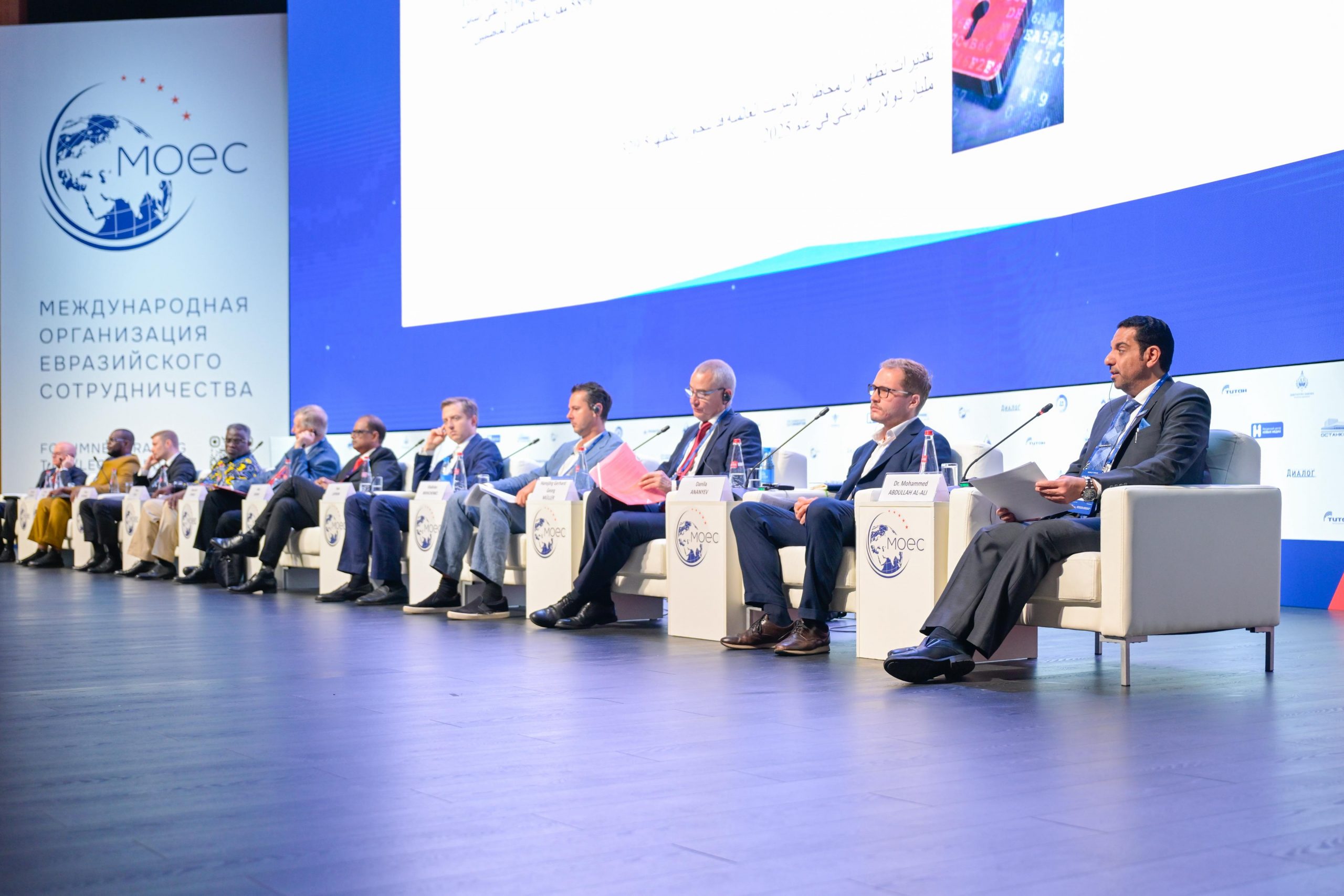
Confronting Cybersecurity Threats
Dr. Al-Ali stressed that enhancing resilience against cybersecurity threats requires strengthening industrial competitiveness through the adoption of AI, the use of digital tools for sustainability, the deployment of fintech solutions, digital governance practices, and greater international cooperation in digital manufacturing. He added that the UAE experience demonstrates the importance of international collaboration in advancing manufacturing and digitization, offering three key lessons: the importance of investing in AI and expanding data centers; active participation in biotechnology and human genome research; and supporting the global transition toward renewable energy.
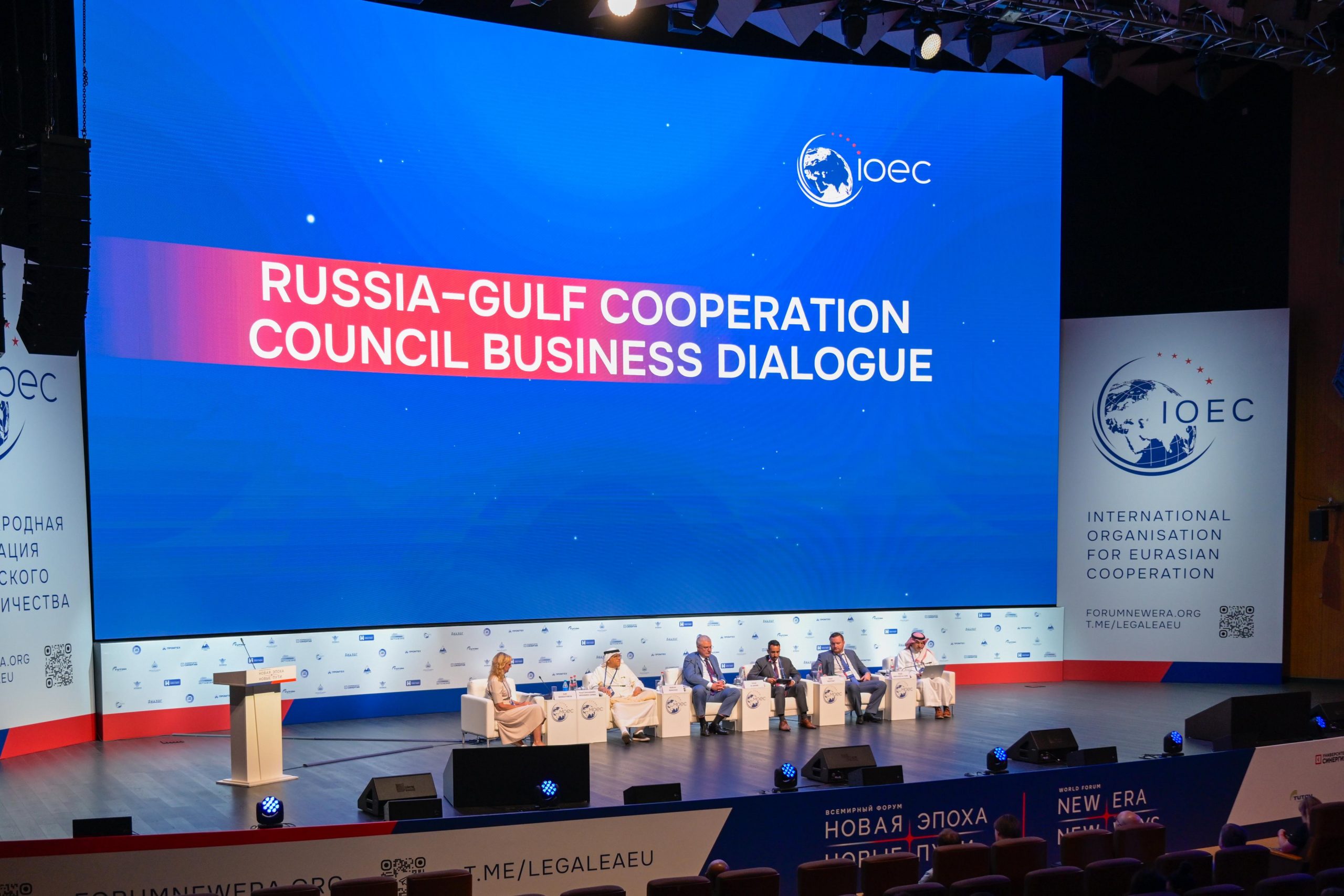
Localizing Economic Development
Fahad Al-Mahri, Senior Researcher and Head of TRENDS Dubai Sector, noted in his intervention during the session titled “Russia–Gulf Cooperation Council Business Dialogue” that cross-border capital flows and direct investment movements across financial markets have become a major driver of economic growth, playing an exceptional role in localizing sustainable economic development both environmentally and socially. Projections indicate that global foreign direct investment will surpass $1.5 trillion, strengthening prospects for growth.
He explained that there are two main types of investment cooperation the global economy urgently needs. The first is based on geography and regional dynamics, as clearly demonstrated by the constructive cooperation among the sovereign wealth funds of the six GCC countries. The second is built on common interests and shared visions, as is the case with current and prospective cooperation between Russia and the GCC in joint investment initiatives.
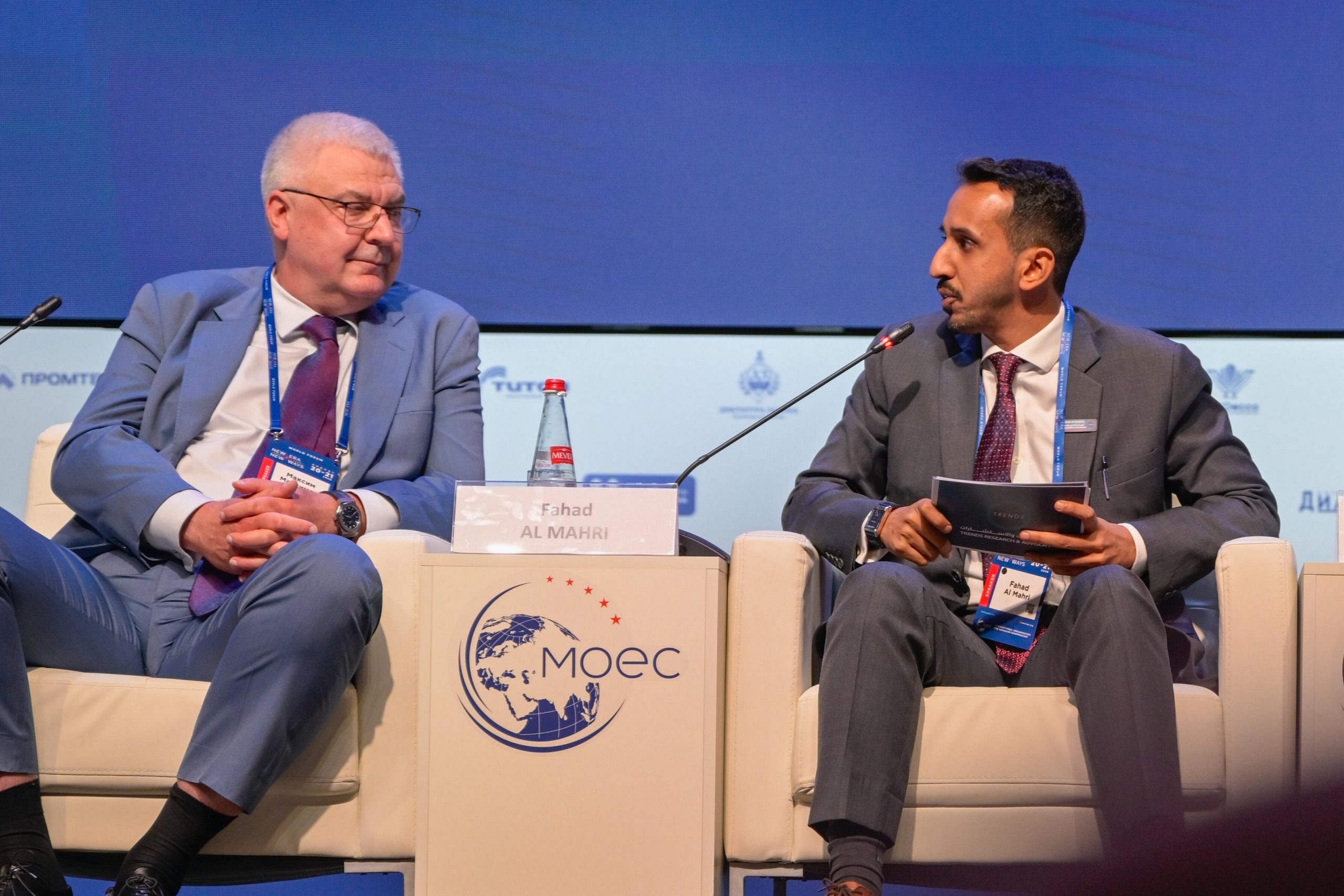
Three Investment Principles
Al-Mahri highlighted that the UAE, through its government, sovereign wealth funds, and national companies, has extended its economic and investment presence globally, with assets exceeding $2.5 trillion in 2024. In international investment, the UAE has focused on three well-established principles: investments that foster development in host countries; investments that strengthen economic ties between countries and regions; and investments that are environmentally and socially responsible.
He added that under the BRICS framework, which bolsters UAE, Gulf, and Russian trade and investment cooperation, promising opportunities are emerging for Russian investments in GCC economies, particularly in the UAE, across sectors such as fintech, digital transformation, cybersecurity, and crypto assets.
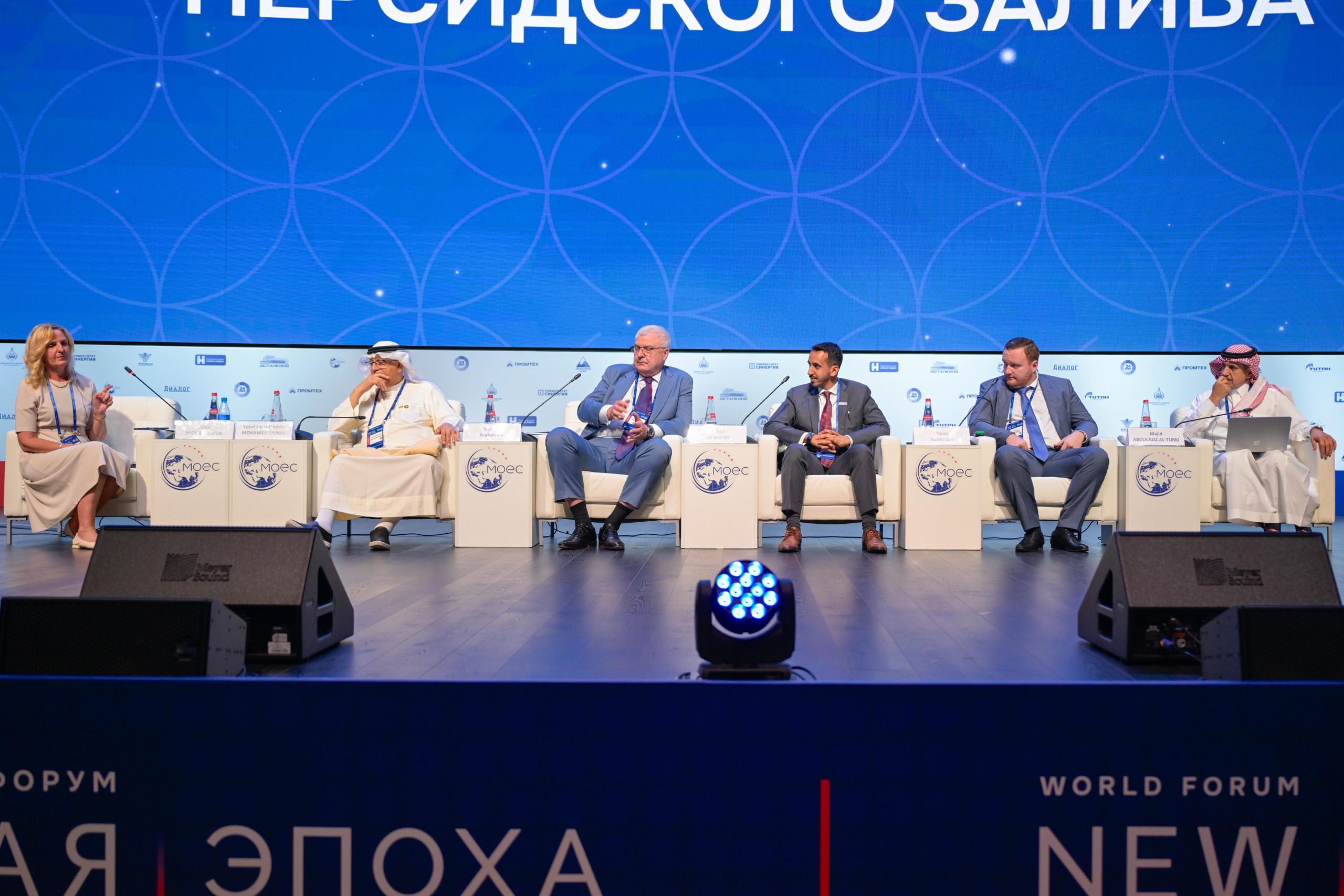
Al-Mahri further noted that there are also promising opportunities for GCC investments in the Russian business environment, especially in banking, insurance, and food industries, in addition to potential joint investment ventures in the international business landscape, particularly in Sub-Saharan Africa, in sectors such as data centers, financial services, and logistics. He concluded that the success of Gulf-Russian investment partnerships requires an active role for private sector companies.



